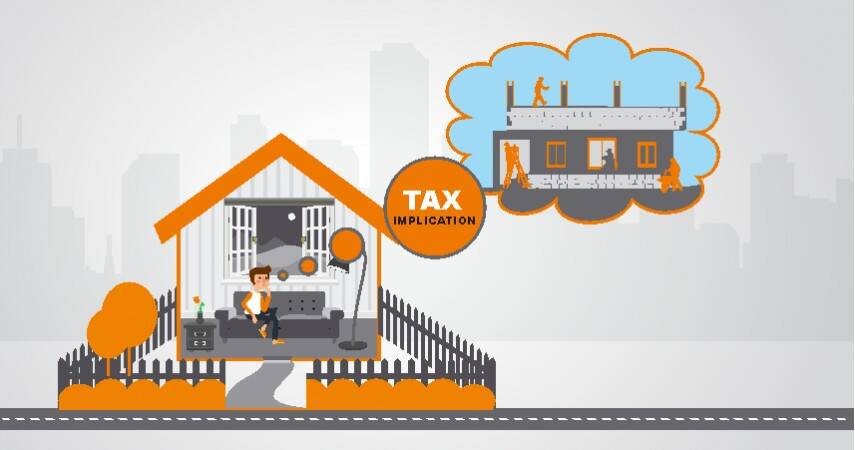There are two kinds of property a person can own, one is Self Occupied wherein a house or a property will be termed self-occupied only under three conditions according to the Section 23(2)(a), which is-
- the house should be occupied and used by the buyer for his own purpose and residence.
- the buyer must not let out the property in the whole year or part of the previous year.
- the buyer cannot derive any sort of other benefit or advantage from the property.
- The decision is on the owner of the house/property that out of the two properties he owns which one he or she wants to make a self-occupied one. However, the chosen house for self-occupancy has to fulfill the above mentioned three conditions.
Let us now get to the treatment of tax for first and the second house that a buyer decides to own or buy. The loan is taken for the self-occupied property, the paid principal amount up to one lakhs under the Section 80C qualifies for the deduction. Under the Section 24, around Rs 1.5 lakhs of the interest paid is tax-deductible.
For the second house, this benefit somewhere gets reduced as in the case of one’s second house only interest payment will be eligible for the deduction, however, there is no such cap of Rs 1.5 lakhs here. So it implies that if a person is paying an amount of Rs 3 lakhs for interest then the entire amount would be eligible for the deduction to a prescribed calculated formula. For a second house which is still under construction, 20% out of the total tax paid during the period of pre-construction is eligible for the tax deduction. Though there is a limit on the benefit of buyers yield on the pre-construction house.
There are tax benefits that a second house yields, however as per advisors, it is not really always beneficial to buy a second house from the tax perspective.







